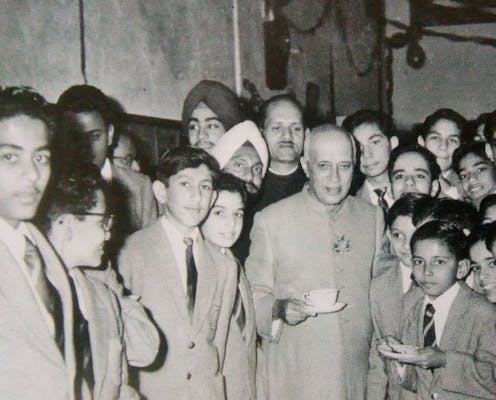Jawaharlal Nehru's vision for a just and equitable post-colonial world, with India leading the way
- Written by Ian Hall, Deputy Director (Research), Griffith Asia Institute, Griffith University
 Wikimedia Commons, CC BY
Wikimedia Commons, CC BYThis piece is part of a new series in collaboration with the ABC’s Saturday Extra program. Each week, the show will have a “who am I” quiz for listeners about influential figures who helped shape the 20th century, and we will publish profiles for each one. You can read the other pieces in the series here.
Ja...
















